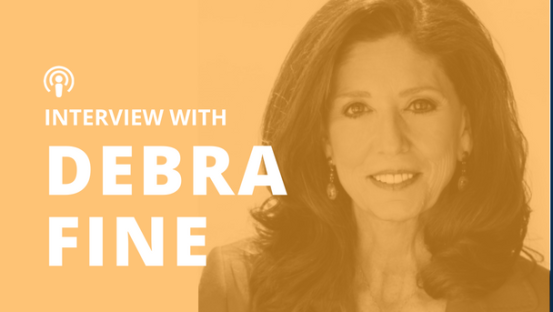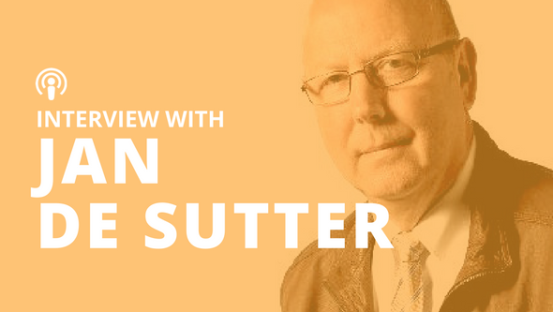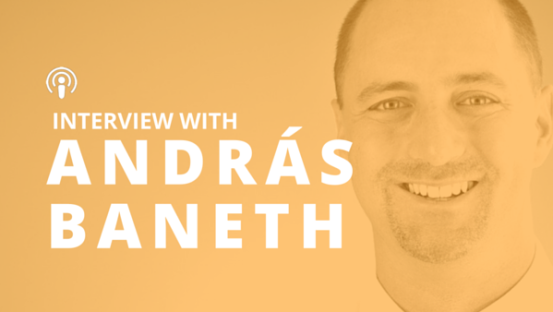Behind The Curtain: Interview With Lieve Leysen

Remember that time when you were trying to communicate something important, and it didn’t come out quite as clearly as you had hoped?
The other person didn’t understand what you were saying, or where you were coming from.
Stress escalated, because you couldn’t get on the same level, and suddenly you were both frustratedly pulling your hair out wondering where it all went wrong.
We’ve all been there.
Communication can be a wonderful, and wonderfully difficult, thing.
In this podcast, we speak with communications expert Lieve Leysen. She has a simple message about how clear communication can help us lead happier lives.
She covers topics like love, communication goals and how recognizing your value as an individual can transform not only your work life, but your relationships and overall quality of life.
Interview with Lieve Leysen
Q: Lieve, can you tell us what topics you speak about?
A: I speak about a few topics. I speak about women, their qualities, and possibilities. I speak about personal communication, and about love.
Q: How did you add love to the repertoire of things you speak about?
A: Love is a big ingredient for the other two. Love is the basis for personal communication, in my case.
I don’t focus so much on specific techniques, I focus on love. When I start to talk with people, it becomes clear what I mean.
Q: What do you teach people about love?
A: I teach people to communicate in a very positive, and clear way, so that they can build good, strong relationships. That’s the main thing.
Besides that, I speak about women, that they have a lot of value. That it’s really important to look at themselves, to take care of themselves, and to be aware of the value that they have. Those are the most important messages.
Q: When somebody comes to one of your sessions or one of your talks, what are they going to take away from it?
A: Different things. At the end they will often have a small list with concrete information about themselves. Real qualities they have, when it’s about women. Because most of the women are not aware of all the qualities that they have. They are unbelievable creatures. They are creative. They do so many things.
People, most of the time, take women for granted. They don’t realize what they do and what they have. That’s something that I show women.
Regularly during my speeches, and in combination with a workshop, people get insights about themselves, and that makes them feel happier. Because they see that, “Oh wow, I have done that, and yes, that’s a success too.”
There are so many things that people do in life that are considered normal, but that actually are all successes. It’s very important that every person is aware of the successes that he or she accomplishes.

Q: It sounds like you really teach women how to celebrate their success.
A: Among other things. Because I also have a closed group on Facebook especially for that, to help women to celebrate their successes.
Q: Why do you think women have a hard time with this, or why do you think they need an extra space to do this?
A: There are so many things that play a role in that. The culture plays a role in that. In some countries culture is really really strong. It has a real big influence on how women behave.
In the Western culture there are some beliefs from hundreds and thousands of years ago that have not really been changed. Basics like the man is responsible for the money, and for defending the family. The woman is responsible for the children, for taking care of everything at home, and for taking care of the man.
In the past it was very black and white, but that’s not the case anymore, happily. But because of these beliefs, women very often underestimate themselves, and also don’t realize that the things they do are often very big things. They are much more valuable than they think.
Even women who work full time. There is a reason why still most of the women, very often, earn less than men, and that that is still the case.
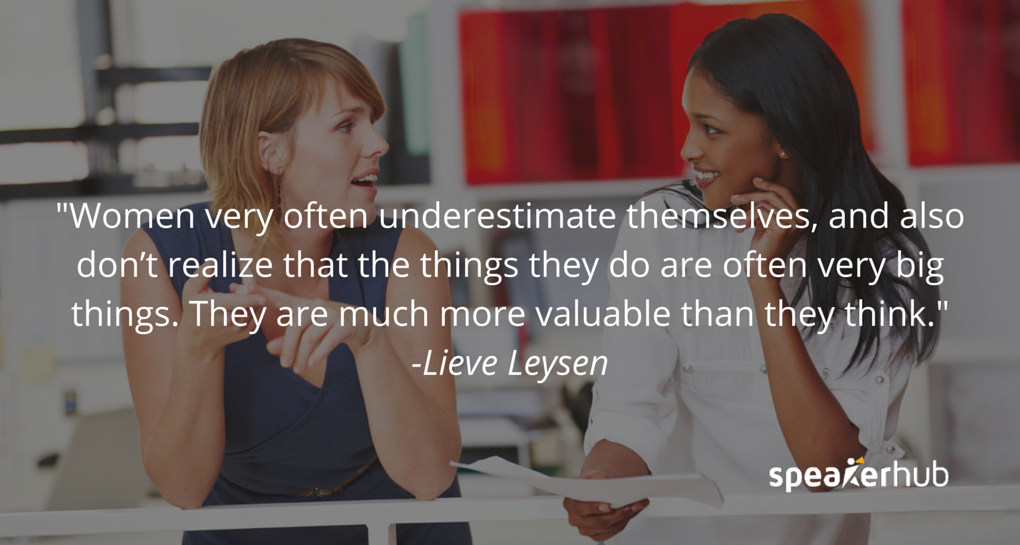
Q: Why is that?
A: I don’t think it’s because of one thing. There are other factors that are also important. But one of the most important things is how women see themselves in the first place.
Because if you don’t find yourself valuable, or important enough, and if you always think of others...That’s very often the case with women. I’ve had that too in a big part of my life.
If you think as a woman that others are always better than you, or that a man is better than you because of, it doesn’t matter what reasons you find, as long as you think that you will get less.
Only from the moment that you are really convinced about your own worth as a person can you receive equal worth from other people for yourself.

Q: When a woman doesn’t know her value, she’s not going to ask for more than what she thinks she deserves. But if she knows, I’m very good at this, I’m very insightful, and I have a lot of experience in this, then she will gain a bit more confidence, and ask for what she deserves.
A: Yes. When you are aware of your value you become more confident, and you ask for what you deserve. But if you aren’t, you can’t.
I had that at one time in my life, and I was getting more confident, but at that point I was not confident enough. My boss, he in a way hit me with some arguments that were ridiculous. But at that time I wasn’t strong, and self-confident enough to get what I wanted.
Q: That was quite a big learning lesson for you when that happened. Then looking back on it now.
A: Yes. It really is. But it’s not easy. I think that it doesn’t only happen to women, it also happens to men. But comparatively women and men, I think there is much more work to do for women than for men.
Q: I think that goes back to the long cultural heritage. Can you tell me how did you became a speaker? How did you get involved in talking about these subjects?
A: I just felt I had to do it. It was after an experience I had with my ex-husband. At a certain point we had had a very bad year. This was my second husband. I discovered at a certain point that he had a relationship with somebody else, and that things were not really evolving the way I wanted them to.
I said “I want to have a conversation with you. I want to clear up some things.” At the end of the conversation I had such an amazing feeling. I said “Wow, it’s unbelievable how I feel now. I have to let other women know that there is another way to do things.”
Because I always say, and people can read this on my website, that I have this day I have for women. It’s a yearly day, a “feel good too” day. I chose that name because I wanted everybody else to feel good like me. I said ”feel good too.”
On my website I say a woman is like a barrel full of feelings that expand regularly into emotions.
When you are in a very emotional situation like what I had, a husband who had a relationship with another woman, it’s really hard to have a very calm conversation in a way that you both feel good, and that you get the result that you want at the end.
That’s what I succeeded in at that time. Because I succeeded in that I had that amazing feeling, and I really felt I have to spread the word to as many women as possible.
Q: When you say that you had this amazing feeling, can you describe that in a little bit more detail? What was it that made it feel amazing when you were effectively able to communicate with your husband, and move forward?
A: The thing was that I was still in love with him, and he was still in love with me. There was a deeper reason. He wanted to have a child. He could not have a child with me anymore, and he wanted a child, and with the other woman he could. That was the main reason.
Anyway, the thing was that he did not want to let me go. Just before that conversation I decided to choose for myself. I decided to be happy. I had realized that the only person who could make a change to my situation was myself.
We had a conversation. Although my ex, he usually was someone who could react very strongly sometimes, he stayed very calm all that conversation long. He showed his love in the way that he behaved.
He let me talk all the way. He said everything that he felt. It was an amazing experience. It felt so comfortable. We were talking like really, really dear friends, where the only thing that we wanted was to be happy, and that the other person would be as well. That made the result that we had, and the feeling that I got.
I could convince him to agree with what I suggested to him so that I would be free. Because that was very hard for him, to let me go. Because he didn’t want to, he wanted to keep me.
But that was such a comfortable feeling, the love, we were working with love. We were not focused on all the negative stuff.
Because many things happened. He did a lot of things behind my back. I had a very tough year before that. It really felt very very bad. But at that moment, it was not forgotten, but it felt like if I had forgotten everything. It was more like it was forgiven.
Q: You were saying that you and your husband both had the same perspective of wanting the other person to be well, and to approach the situation with love. I think that there’s a sense of equality there.
But what happens when you’re trying to communicate with somebody who does not share that perspective? When they are biting, and they’re angry, and they’re hard. How do you bring them up to the level of wanting to communicate in a loving and helpful way? How do you approach that situation?
A: You have to know that my husband didn’t start the conversation, and the whole thing, thinking that he wanted me to be happy. But he realized that very soon, because of the way that I talked with him.
When you are with a person who doesn’t think that way, you can’t change that person, and you cannot push a person into something, because that will always have a negative reaction.
But what you can do is make things clear in a very positive way, and let people discover themselves by the way that you explain things.
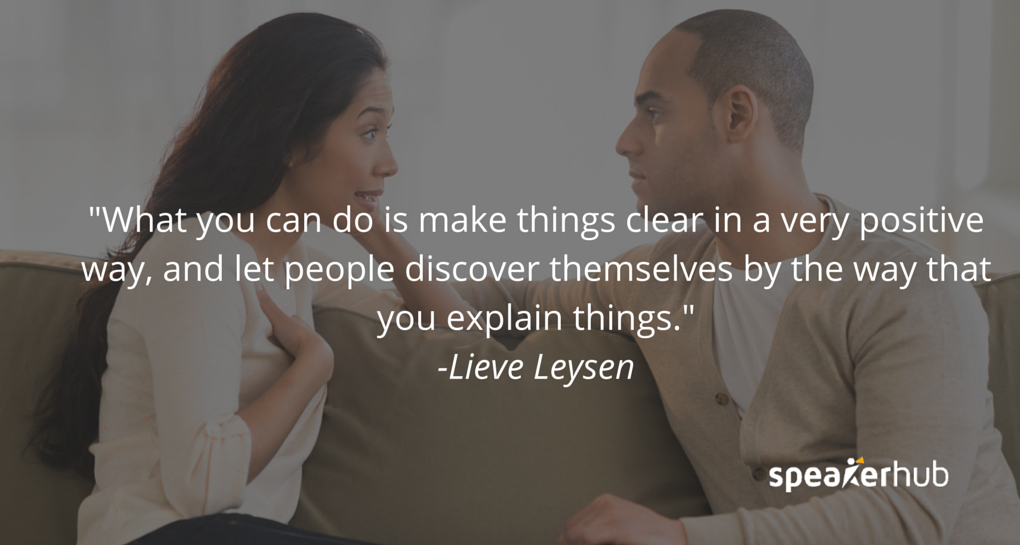
Q: What you’re saying is that when you start the conversation, if you can start it in a way where you’re clearly communicating, saying this is what I want this conversation to look like, and sound like, this is what I want us to get out of it. That usually the other person will calm down, or at least try and open up a little bit more.
A: It’s like you are setting certain goals before that conversation for yourself. You have to know where you want it to end. You have to know exactly how you want the conversation to go, not how you think that it will go.
Then if you have done that you can look into it and say “Okay, what can I do to make it go that way? How can I do that?”
Actually it’s like anything that you want to achieve, including in business. You have to set certain goals, and then look at how you can reach those goals. But it all starts with you.
It doesn’t matter who you are in communication, whatever position that person is in. It all depends on you. Your behavior, the way that you handle everything. It all starts with you.
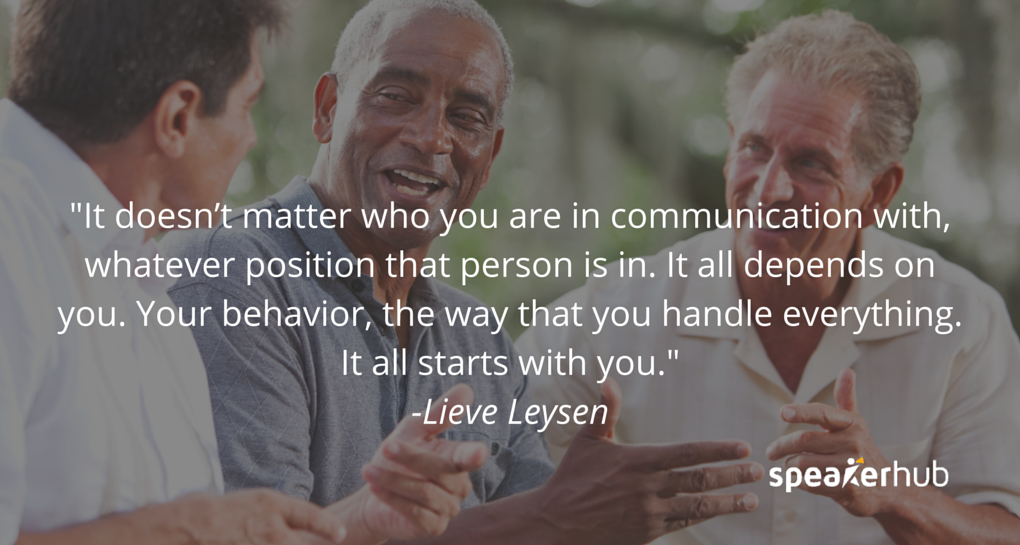
You define how it will go. Strange as that may sound, that’s the case. It depends on how you behave, how you think, and how you speak. Depending on that you will get certain reactions from the other side.
Q: It sounds like what you’re saying is one of the keys is to step back a second and take a look. What do I need out of this situation? What do I want? Where do I want it to go? Then that sets the precedent for building your way there.
A: Yes. Exactly. Then it’s also important that you keep with what you decided at the beginning.
Q: What’s the hardest thing you’ve had to learn about communicating your messages?
A: The hardest thing is that you have to be your authentic self. At first I didn’t do that, and I tried to copy others. What happen then is you just go off. You go completely off. That’s a terrible feeling.
Q: What do you mean when you say “off”?
A: You lose face, in a way. People feel that something is not as it is supposed to be. You don’t get the positive effects that you have when you aren’t your authentic self. Because when you are your authentic self you create momentum.
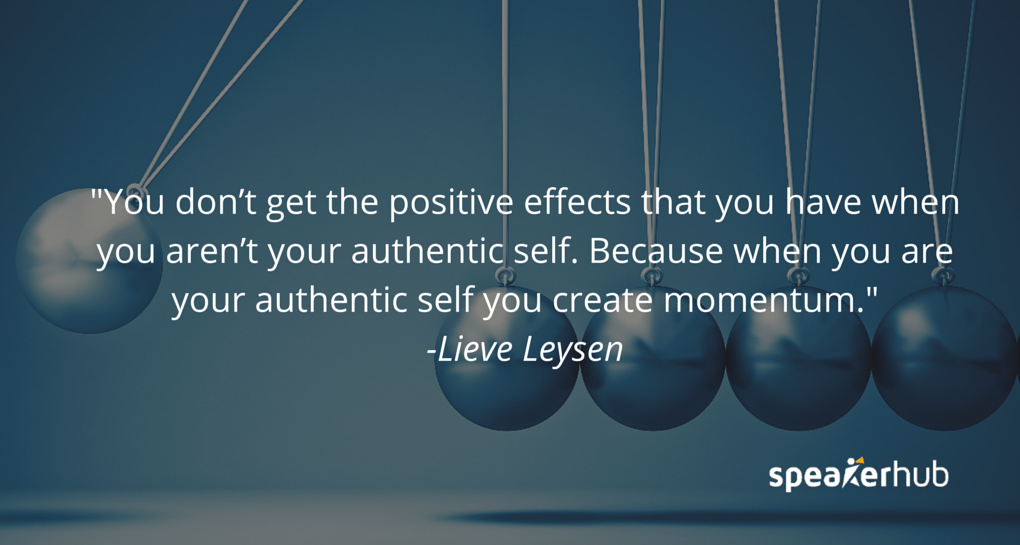
For my entire life when I heard someone talking about momentum, or creating momentum, I had no clue what they were talking about. I don’t know if this is an expression that you’re familiar with.
Q: Can you describe to us what you mean?
A: When you create momentum, it’s like riding a wave of positive energy. You have some positive effects on the people around you.
The more authentic you are, the stronger that positive effect becomes. The longer you go on the same path, in the same way, the stronger the effect will become, and the more people will talk about it.
But if you are not your authentic self, you don’t have that effect, you don’t gain momentum. If you are not authentic, you just spread a message to the group that is with you at the time, and it stops there, or you only get negative results.
If you are really your own you, your authentic self, you do everything your own way, and you spread the message that you really want to spread from deep in your heart, in your own way.
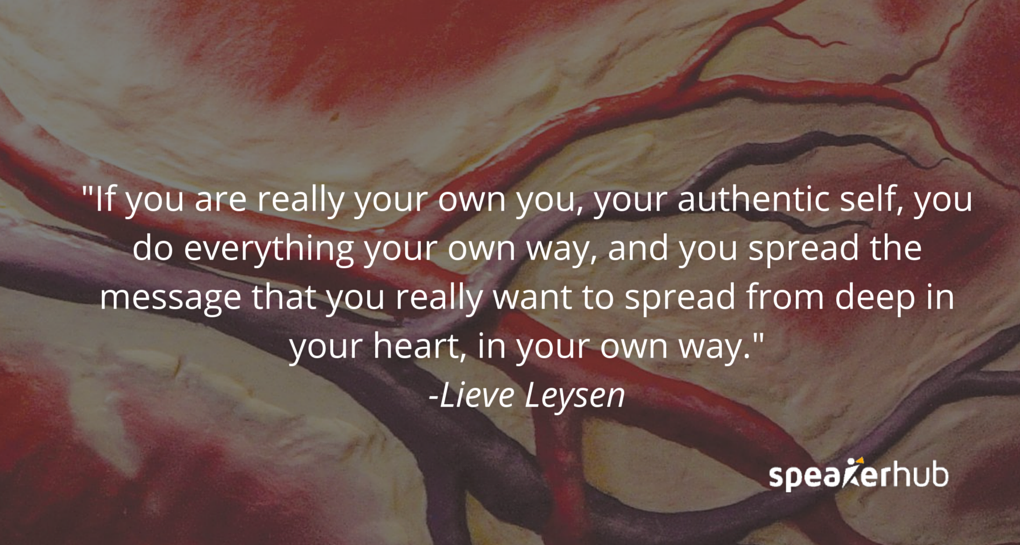
Then you create momentum. Then people feel touched, and you create a real group feeling also. Everybody in the room then feels what you are talking about.
Q: Connectivity.
A: Yes. You are connected. You get connected. They keep talking about it afterwards as well.
Q: What does it mean to not be your authentic self?
A: If you’re not your authentic self, that’s what I said before. Because the lesson I learned at that moment was when I tried to copy other speakers. It was in the beginning, and I did not really know what my authentic way was.
I knew I had to be authentic, but I had no clue what my authentic way was. You have to do it to discover it.
Q: What was your authentic way?
A: My very first time that I spoke in public I was really authentic. But I had no choice, because I lost everything that I had prepared. I had lost those things a couple of days before. I had no other choice but to be authentic.
It’s just telling what you know, what you feel: especially from your feelings.
It’s the message that you have, combined with your feelings. That you express in your way, the way you are.
You can have days that you know you are really yourself. You feel good, you feel comfortable. You behave the way that you are, as your natural you.
Only you know yourself. How is your natural you when you have a good day? When you are in that mood, and you talk in that mood, you are authentic.
Q: How do you capture that? Because I can definitely think about my own life where I’m like “oh, at that moment I was really happy. I was happy and authentic. I was just being myself, doing my thing.”
But when you get back into the workplace, and you’re back in your office, and you’re very task oriented, or before you get on stage, where there’s maybe 5,000 people that are all looking at you. How do you recapture that feeling of being authentic?
A: You have to believe in yourself. That’s important. You have to believe that it is good as it is, and that you are good as you are.
When you speak about something the most important thing is that you can inform the other people about this so that they can reach the same happiness that you experience yourself, knowing what you are going to tell them.
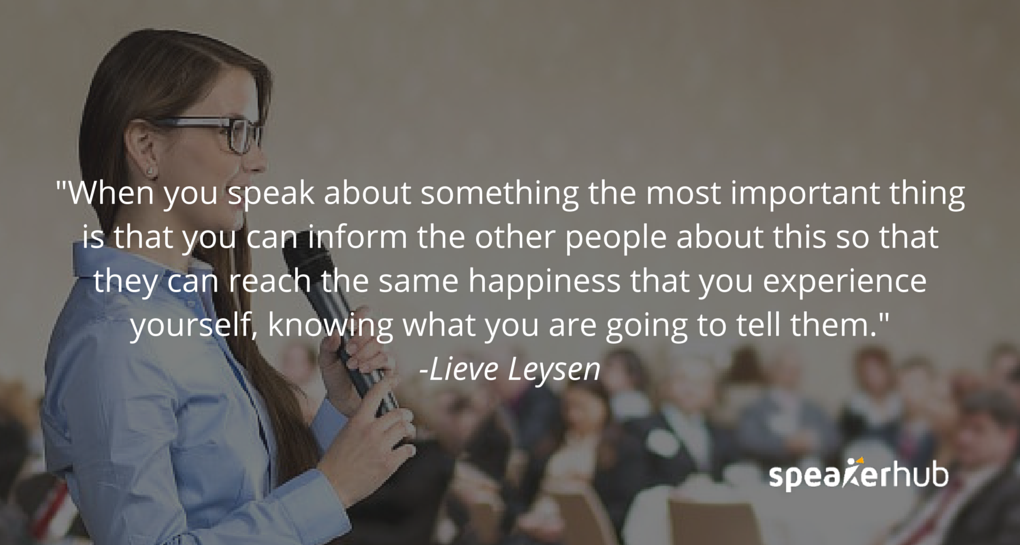
You want the best for the people there. You are convinced that it’s really truly something that helps other people, the thing that you are talking about. You are convinced that it doesn’t matter. It doesn’t matter what other people say or think.
You know that this is the right thing to say, and that you need to say this. Because it can help other people. It can help the world. You are convinced that no matter how you do it, that’s the way it feels good for you. It will feel good for the people who can connect with that.
There will always be some people who cannot connect with it, but that’s okay. Because some people are ready to receive certain information, and other people are not ready to receive certain information.
Those who are ready will pick it up. Those who are not ready will not pick it up, or will look into it later, and that’s okay.
You feel confident because you know that it’s a good thing that you are doing. For me that’s all that matters. Because the only thing that I want is for people around me to be happy.
I will always do everything in my power to pass on all the knowledge that I have so that other people have the opportunity to use, or to discover this knowledge, and to become as happy as I feel.
Q: That goes back to what we were talking about earlier, about having an end goal, and then clearly working towards that goal. When you talk about that your main aim here is to help people, and to get them to a place where they feel happier, and confident, everything else falls into place, because that’s the direction you’re going.
A: Yes, exactly. That is my mission. I just want to contribute to a happier world, to a happy life for as many people as possible. To help them by helping them discover their qualities and possibilities.
Helping them with positive and crystal clear communication. Because communication is such an amazing part. The biggest part of our life has everything to do with communication, in one way or another.
Q: What is the one piece of advice you would offer our listeners, and myself, about being crystal clear in your communication, and effectively communicating with others?
A: I think the most important thing is to follow your heart, and stay loyal to it. You can do that if you focus on the essence of your message that you want into send to the world, the message that comes from deep down inside your heart.
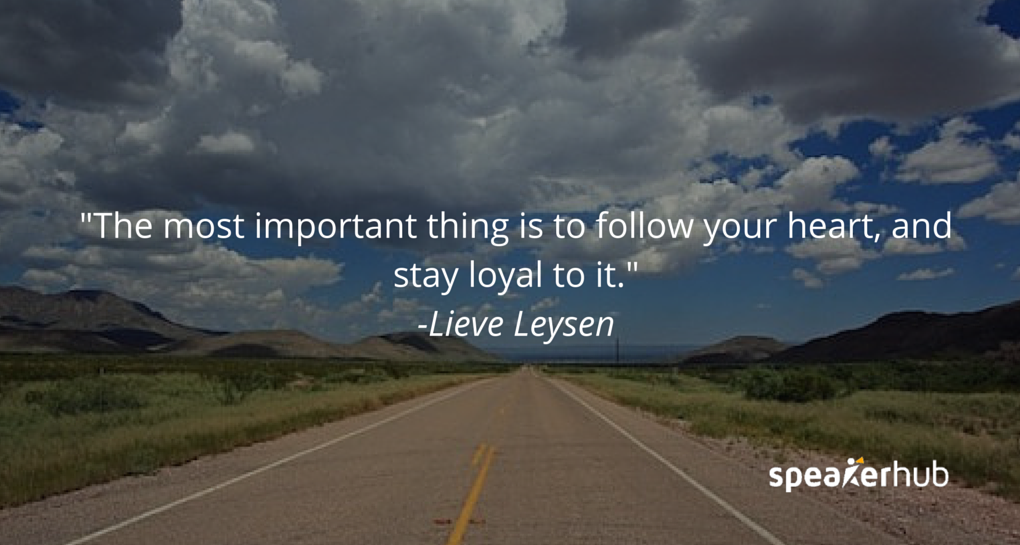
Of course it’s important that you also believe in yourself, that you are good as you are, that you don’t listen to what other people say before or afterwards. Because only your heart, and the higher mission that you have for the people around you, only those things count.
About crystal clear communication. I was in the same position until a couple of years ago. But most of the people are really good at staying in a position that they don’t want. Most people have no idea, or most of the time don’t say what they really want.
If you start to focus on that, and to focus on the way that you express things you will notice that there is a very big difference, also in the words that you choose. When you are crystal clear, what you say can only be interpreted in one single way. If there is room for more than one interpretation, your message is not crystal clear.
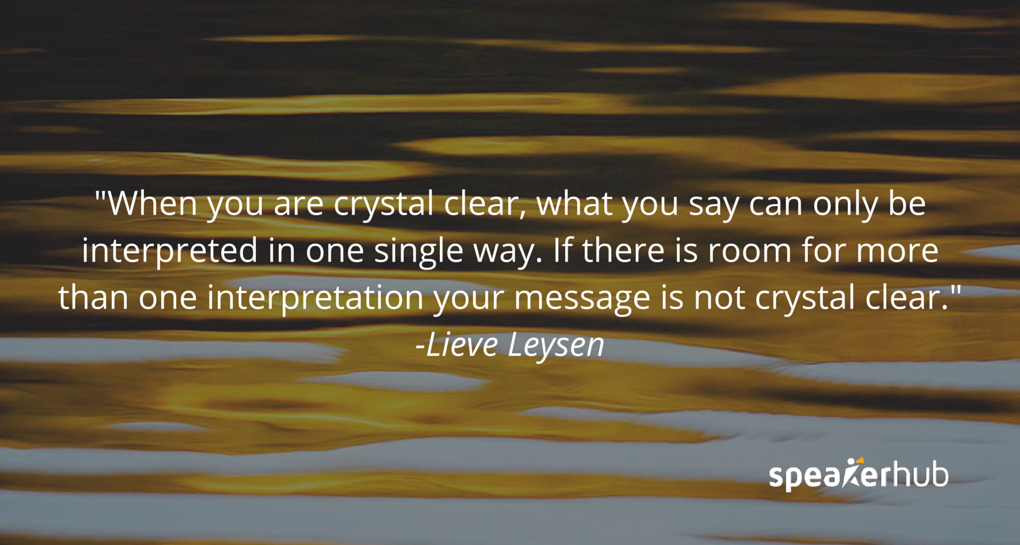
Q: How do you help people to get there? How do you get people go from muddy or confusing communication, to having that crystal clear way of communicating?
A: By practice, and by showing them how they can do it. Everybody has untold examples in their own life of how it goes when communication is not crystal clear.
I have had untold examples in my own life where I saw that people acted in a different way than I wanted. But at that time, at that moment I was not aware of the fact that actually that had to do with my own communication in one way or another.
Over the last couple of years, at a certain point I started to train myself in that. When you do that it’s amazing the effect that you get. It feels very comfortable.
For me it’s not so hard anymore. Now I’m very much aware of what I’m saying when I talk to people, especially if I have certain goals that I want to reach. It’s also a way of living.
It’s not something that you can say in three words, you need more time for it, and you need practice. But it is possible for everybody. I can recommend it to everybody, because it is great.
Q: Just to summarize. It’s still this idea of knowing what you want to get out of the situation, and then not leaving room for confusion with the people around you. This is where I want to go, and this is why I want to do this. Once you have figured that out communication falls a little bit more clearly into place.
A: That counts for everything; work, personal relationships, no matter if it’s with your love, or with your children. It doesn’t matter, it’s for everything.
A bit about our speaker
Lieve Leysen’s mission is to contribute to a happier world by helping people, with a focus on women. She works with women from all walks of life discover their qualities and possibilities so that they can get the maximum out of themselves and their life and by the use of their biggest force: Love.
Links:

